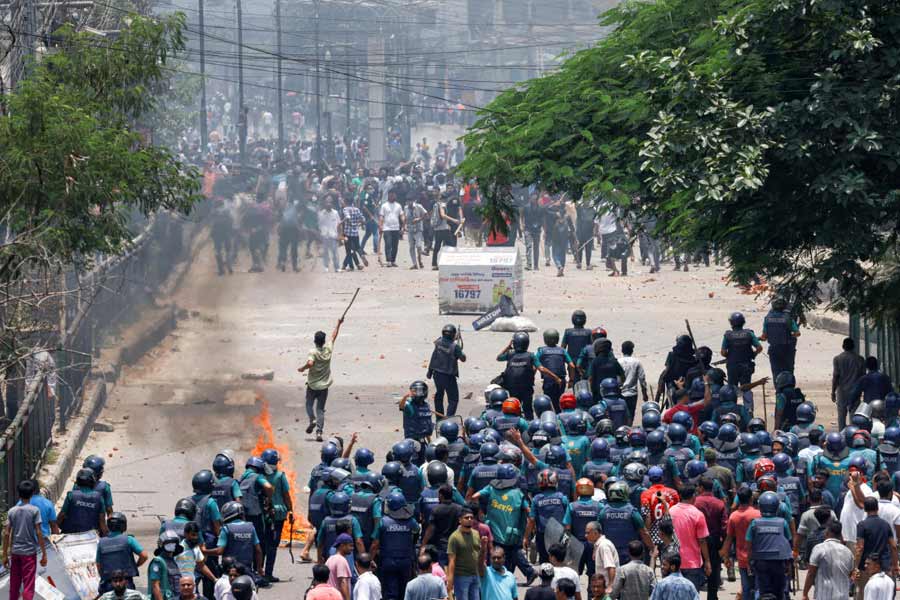A medical student from Calcutta, doing her internship at a private medical college at Dhanmondi, the heart of anti-government protests in Dhaka, decided against returning to India during the turmoil and treated many injured protesters.
Saini Pervin, 25, from Park Circus, is doing a ninth-month internship at Popular Medical College Hospital in Dhaka.
She is now posted in the surgery department, having done stints in a number of other departments, including gynaecology and medicine.
“I still have three months of internship left. After that I plan to apply for higher studies in the UK. So, I want to complete my internship without any interruption,” Pervin told Metro from her hospital campus in Dhaka on Wednesday.
“During the protests, many protesters, mostly students between 17 and 25 years, came to our hospital for treatment. There were even children who were seven or eight, who were at the protests and hit by pellets,” she said.
“I had never thought I would experience a civil war from so close. How could someone open fire or use toxic tear gases on such young people?”
Pervin, along with Bangladeshi interns and senior doctors, treated many injured protesters.
She said there were two days when hundreds of injured protesters had come to the hospital. One was in July and the other was August 4, Sunday, a day before Sheikh Hasina resigned as Prime Minister and left Bangladesh.
“I was on night shift on August 3 and went back to the hostel the next morning. I came back to the main gate as I heard a big protest was taking shape. Many protesters had gathered on the road. A group of students, backed by the government, started shooting at the protesters. There were also people armed with steel rods,” she recounted.
The injured started arriving at the hospital around 10am (Bangladesh time).
“As the day progressed, the number of injured grew. More than 250 injured protesters came to the emergency room till late evening,” said Pervin.
Interns from other departments, senior professors and even pharmacists had to rush to the emergency room to treat the injured.
“There are only a few beds in the emergency room. So, once we stabilised an injured protester, we made him sit on a chair or lie on a trolley and made the bed available for the next one in the line,” said Pervin.
She spoke about an eight-year-old boy who was hit by pellets in his right eye and neck. “I took out the pellets,” she said. “Others, too, were injured in their eyes.”
“I helped in dressing the wounds of several who suffered bullet injuries. After that we referred them to government hospitals,” Pervin said.
Some of the protesters, who suffered relatively minor injuries, told Pervin that they would rejoin the protests immediately after being discharged from the hospital.
“That night, eight other interns and I stayed back in the hospital. In the morning, we were escorted by hospital officials and security personnel to the hostel,” she said.
Mohmmad Rokonuzzaman, secretary of Popular Medical College Hospital, said that of the 169 medical students from India, only two stayed back during the unrest. Pervin was one of them.
“We escorted the other students safely to the airport before the trouble started. We have spoken to the Indian high commission to confirm that all of them reached home safely,” said Rokonuzzaman. “We are ensuring Pervin’s safety.”
Pervin said: “We are not leaving the campus. The authorities are making arrangements for our daily needs.”
“During the curfew that continued for about a week, I did not step out of the campus even once. One of my friends, Tanmoy, had arranged my food and other necessary items,” she said.
Pervin was in touch with her parents every day. “They left it to me to decide whether I should stay back or return to Calcutta,” she said.











